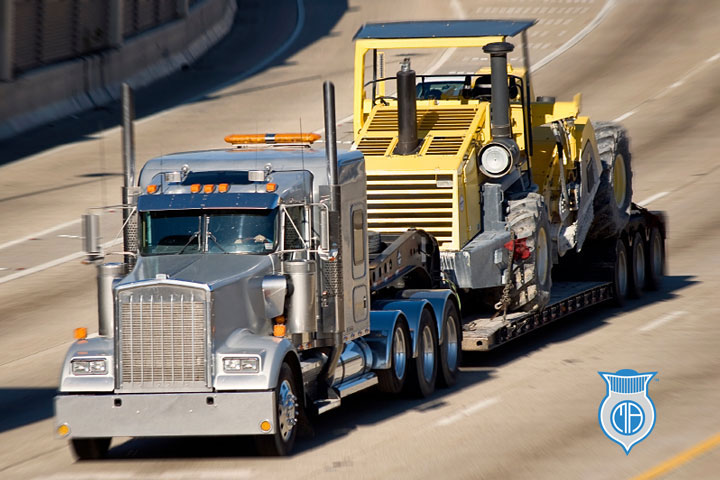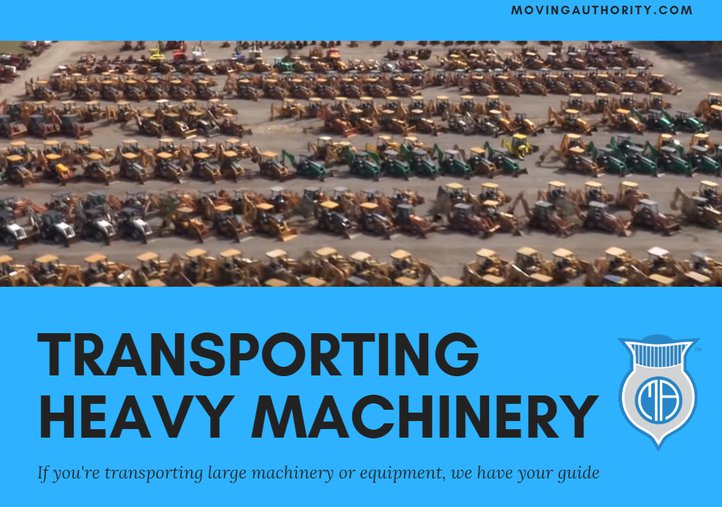Transporting Heavy Equipment with Moving Companies
Transporting Heavy Machinery & Equipment
- Professional Movers Who Actually Move Moving Equipment
- Trailers Used to Transport Heavy Equipment
- How to Prepare Heavy Equipment for Transportation
- How to Reduce Shipping Costs
- Consider Purchasing Additional Insurance
1. Professional Movers Who Actually Move Moving Equipment
Every year, moving companies transport heavy pieces of machinery to thousands of different locations across the country. If you’ve never transported heavy equipment before, you can rely on a multitude of Los Angeles moving companies to provide you with safe and reliable shipping options. You need professional movers that are equipped to actually get the equipment loaded and then transport it safely. There are tools for this, but not every moving company has them. You will likely also require a heavy duty dolly. Machinery movers are available all over the united states to help with the task of moving the equipment that keeps your business running.
When it comes to transporting heavy equipment, regulations stipulated by the state must be followed in order to get the job done safely and legally. Requirements for carrying heavy loads may vary from one location to the next, so moving companies take the time to plan a route and acquire the necessary permits. Over the phone, a representative of the moving company can give you a quote in a matter of minutes.
2. Trailers Used to Transport Heavy Equipment
- Flatbed Trailer
- Lowboy Trailer
- Drop Deck Trailer
Certain types of vehicles are used that are specifically designed to haul heavy types of machinery such as tractors, front end loaders, and excavators. Extendable trailers are often utilized to transport this type of cargo across long distances. After the machinery is loaded onto the trailer, it has to be tethered to the bed securely.
Professional movers secure heavy equipment with bracings, fasteners, and tarps. In order to transport heavy loads, companies must be licensed by the Federal Motor Carrier Safety Administration. The task of transporting heavy objects requires a thorough understanding of the safety precautions that must be performed in order to prevent an accident.
3. How to Prepare Heavy Equipment for Transportation
Preparing your equipment for local or long distance transportation requires the shipper to complete a small check list. Make sure to wash the equipment of any dirt and deposits to accurately determine its condition. Document any damages such as scratches or dents by taking photographs to cross reference with on the day of arrival. If damages occur, make sure to contact the shipping service immediately to file a claim.
On the date of transport, an inspection of the machinery will be conducted before the equipment is loaded onto the trailer. All damages and imperfections will be noted on a report sheet which the shipper will sign and receive a copy of. If there are any security features such as an alarm, make sure that it is disarmed.
4. How to Reduce Shipping Costs
To determine a quote, the weight, height, length, and size of the cargo will be included in the total cost. Shippers can save cash by providing their own packaging materials and containers. Another way to save money is to cut down on width which can be done by breaking the machinery down into smaller parts.
5. Consider Purchasing Additional Insurance
The federal government requires that moving companies have a minimum of $100,000 worth of coverage on their cargo insurance policy. Typically, heavy equipment is very valuable so moving companies will cover up to $250,000 for this type of move. It is highly recommended to purchase freight insurance to ensure that your property is fully covered. This additional insurance is fairly inexpensive, customers usually only need to pay ten dollars for an extra $100,000 worth of coverage.
Add Comment